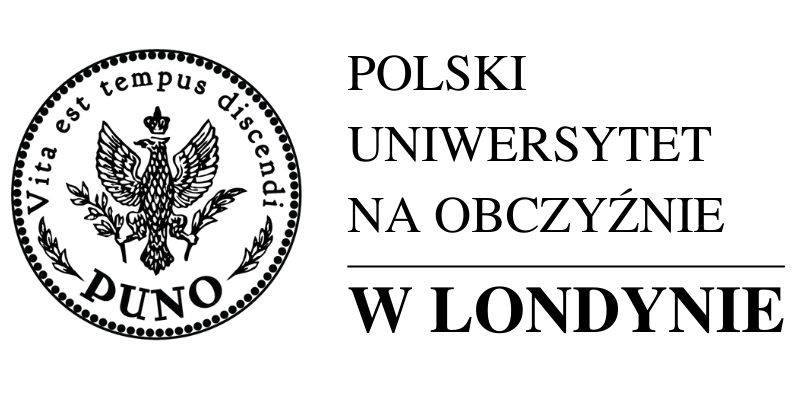Professor Mikołaj Kunicki
PhD in history, with focus on contemporary European history, film and media scholar. Assistant Professor at the Institute of Journalism and Social Communication, University of Wrocław.
Kunicki’s research concentrates on contemporary history of Poland and East-Central Europe, especially nationalism, communism, fascism and Catholicism, and history of Polish and European cinema. He also studies the role of popular culture in the legitimization of authoritarian regimes and politics of history. Author of monographs, articles and chapters on history, cinema, and television.
Kunicki holds PhD in history from Stanford University and MA degrees from the School of Slavonic and East European Studies (SSEES) in London, Central European University (CEU), and University of Warsaw. He lectured on Polish and European history at the University of California Berkeley, University of Notre Dame, and University of Oxford. From 2013 to 2016 he was Director of the Programme on Modern Poland (POMP) in St Antony’s College in Oxford. Recipient of fellowships at the Imre Kertész Kolleg Jena, the German Historical Institute (DHI) in Warsaw, and Institute of Human Sciences in Vienna.
Selected publications
Monographs:
Between the Brown and the Red: Nationalism, Catholicism, and Communism in 20th-Century Poland – The Politics of Bolesław Piasecki (Athens, Ohio: Ohio University Press, 2012).
Articles in refereed journals and book chapters from the last ten years:
- Lustration and the Roman Catholic Church in Poland, (w:) Church, Memory and Justice in Post-Communism, (red.) L. Turcescu, L. Stan, Cham 2021, s. 21-44.
- Medical Doctors Rule the City: Roman Załuski’s Zaraza / Epidemic and the 1963 Smallpox Outbreak in Wrocław, “Apparatus. Film, Media and Digital Cultures of Central and Eastern Europe”, 12 (2021), open access.
- A Socialist 007: East European Spy Dramas in the Early James Bond Era, (w:) The Cultural Life of James Bond: Specters of 007, (red.) J. Verheul, Amsterdam 2020, s. 41-60, open access.
- Imperfect Metropolis: The Evolving Projections of Wrocław in Polish Feature Films, (w:) Lviv and Wrocław, Cities in Parallel? Myth, Memory and Migration, 1890 – present, (red.) J. Fellerer, R. Pyrah, Budapest 2020, s. 41-60.
- Cultural Opposition and Filmmaking in Communist East-Central Europe: Lessons from Poland and Former Yugoslavia, (w:) The Handbook of COURAGE: Cultural Opposition and Its Heritage in Eastern Europe, (red.) B. Apor, P. Apor, S. Horvath, Budapest 2018, s. 267-288. Co-authors: N. Daković, D. Leppla.
- Cultural Opposition Goes Abroad: The Collections of Diaspora Communities, (w:) The Handbook of COURAGE: Cultural Opposition and Its Heritage in Eastern Europe, (red.) B. Apor, P. Apor, S. Horvath, Budapest 2018, s. 473-492. Co-authors: B. Apor, T. Vagramenko.
- “Optimism against All Odds”: Polish National Identity in War Films of Jerzy Passendorfer, “Sprawy Narodowościowe”, 49 (2017), open access.
- Poland’s Wild West and East: Polish Westerns of the 1960s, (w:) Popular Cinemas in Central Europe: Film Cultures and Histories, (red.) D. Ostrowska, Z. Varga, F. Pitassio, London 2017, s. 157-172.
- A Church-State Conflict: Jerzy Kawalerowicz’s Mother Joan of Angels and Cinematic Projections of Catholicism in Gomułka’s Poland, “Iluminace. Journal of Film Theory, History, and Aesthetics”, 28 (2016), s. 5-23.
- Pionere, Siedler und Revolverhelden: Die ‘Rückgewinnung’ der Westgebite im Polnischen Spielfilm der 1960er-Jahre, (w:) Der lange Weg nach Hause: Konstruktionen von Heimat im europäischen Spielfilm, (red.) D. Müller, L. Karl, K. Seibert, Berlin 2014, s.190-210.
- Heroism, Raison d’état, and National Communism: Red Nationalism in the Cinema of People’s Poland, “Contemporary European History” 21 (2012), s. 235-256.
Dr Wojciech Rappak – Deputy Head of Unit
Studied at the University of Alberta, Univerity of Warsaw, Sorbonne and University of London. PhD from King’s College London, dissertation on the concept of ‘logical form’ in the early philosophy of Wittgenstein. Master’s degree in History from SSEES, University of London; PhD from UCL on Jan Karski’s wartime reports.
Research on the transfer and acceptance of information about the Holocaust in the West. A historical scrutiny of Jan Karski’s wartime activities. An investigation of the distinction beteween a historical account and historical fiction.
Selected publications: Holocaust Rescue Revisitied: An Unexplored Angle; Israel Journal of Foreign Affairs, 2014. Karski meets Zygielbojm, in Zygielbojm, PUNO Press 2018. ‘“Raport Karskiego” – kontrowersje i interpretacje’, Zagłada Żydów, Studia i Materiały, Vol 10., 2014, Review of Zimmerman on the Polish Underground and the Jews 1939-1945, The Notion of Form in Wittgenstein’s Tractatus, PhD dissertation, King’s College London, 1981; New York Times 25 November 1942, [To be published], Karski meets Roosevelt, [To be published].
Professor Michael Fleming
Research: Professor Fleming’s currently research explores the development of a regime of international justice during and after the Second World War, with particular focus on the work of the United Nations War Crimes Commission.
Selected Publications:
In the Shadow of the Holocaust: Poland, the United Nations War Crimes Commission and the Search for Justice, (Cambridge University Press, Cambridge, 2022) www.cambridge.org/9781009098984
Auschwitz, the Allies and Censorship of the Holocaust, (Cambridge University Press, Cambridge, 2014/2021).
www.cambridge.org/9781107633667
Communism, Nationalism and Ethnicity in Poland 1944-1950 (Routledge, London, 2010)
https://www.routledge.com/9780415625005
